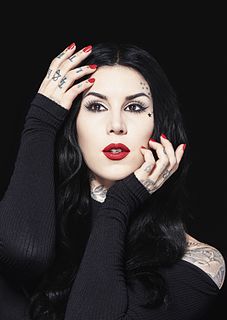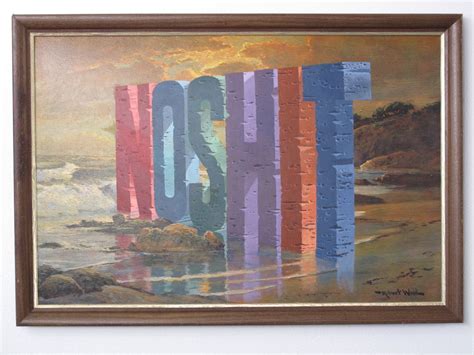A Quote by Rebecca Solnit
Beauty is often spoken of as though it only stirs lust or admiration, but the most beautiful people are so in a way that makes them look like destiny or fate or meaning, the heroes of a remarkable story.
Related Quotes
First of all, I love women. But I lust after beautiful women in the way that I lust after a beautiful piece of sculpture - this will probably get me in trouble - or a beautiful car. I believe everyone's on a sliding scale of sexuality. There are moments where I am sexually attracted to women. But it doesn't overpower my first impulse; my lust for them is the same as my lust for beauty in all things.
A story is a way to say something that can't be said any other way, and it takes every word in the story to say what the meaning is. You tell a story because a statement would be inadequate. When anybody asks what a story is about, the only proper thing is to tell them to read the story. The meaning of fiction is not abstract meaning but experienced meaning.
My heroes and heroines are often unlikely people who are dragged into situations without meaning to become involved, or people with a past that has never quite left them. They are often isolated, introspective people, often confrontational or anarchic in some way, often damaged or secretly unhappy or incomplete.
Beauty is embarrassing for three reasons. When we see something beautiful it calls up raw, naked emotion and that's an embarrassing situation to be in. Number two... People that are born beautiful like supermodels act like entitled a**holes. It makes you embarrassed just to see 'em. They handle beauty embarrassingly. Number three... Artists are people who create beauty. That's the bottom line. It would be really embarrassing to introduce yourself as somebody who makes beauty. So that's just three of several reasons why I think beauty is embarrassing.
There are men who bloom in chaos. You call them heroes or villains, depending on which side wins the war, but until the battle call they are but normal men who long for action, who lust for the opportunity to throw off the routine of their normal lives like a cocoon and come into their own. They sense a destiny larger than themselves, but only when structures collapse around them do these men become warriors.
The experience of beauty is in the eye of the beholder, as they say. The artist's relation to the object of beauty, how the art makes that happen, is a whole other subject. Beauty is an event. Beauty is something that happens. There is no such thing as a beautiful object or a beautiful woman. These things do not come near it - the experience of beauty, the event of beauty. The anxiety about it is what makes it such a central concern of culture and makes us so interested in it.
Destiny ... a word which means more than we can find any definitions for. It is a word which can have no meaning in a mechanical universe: if that which is wound up must run down, what destiny is there in that? Destiny is not necessitarianism, and it is not caprice: it is something essentially meaningful. Each man has his destiny, though some men are undoubtedly "men of destiny" in a sense in which most men are not.
Vanity is really the least bad and most pardonable sort. The vain person wants praise, applause, admiration too much and is always angling for it. It is a fault, but a childlike and even (in an odd way) a humble fault. It shows that you are not yet completely contented with your own admiration. You value other people enough to want them to look at you. You are in fact still human.





































